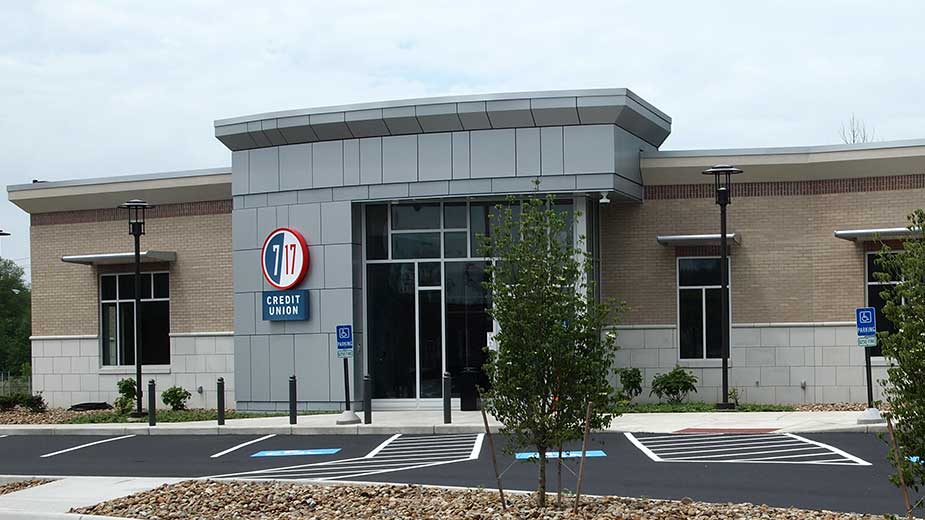Business Insurance Needs Best Determined by the Pros
YOUNGSTOWN, Ohio – When a business needs advice on a financial matter, its first call is to its accountant. When a business needs answers on a legal issue, it’s a no-brainer to contact the company attorney.
So, why then do some businesses continue to think they can tackle insurance issues without the proper counsel from an insurance professional?
It’s a question specialists ask constantly as they move to educate companies and businesses on the types of insurance they need to protect the assets they’ve worked so hard to build.
“Don’t buy insurance because we’re your friends,” advises Jim Klingensmith, senior vice president of L. Calvin Jones & Co., Canfield. “Buy it because we know what we’re doing.”
Today, it’s imperative that businesses vet their insurance agents before signing any documents or contracts related to the operations or assets of the company, Klingensmith says. “There are a lot of people out there who consider themselves experts,” he says. “The critical part is that you understand what you’re getting for your money.”
Klingensmith says his company has all too often secured clients after they’ve experienced a hardship because the insurance policy they carried didn’t provide adequate coverage in the event of a worse case scenario. “We’ve picked up a number of clients who thought they were insured for something, but weren’t,” he relates. “That’s too much money to spend on a hopeful promise, and often that’s the agent’s fault.”
In other cases, Klingensmith has found, an adjustor made a mistake that the agent never challenged. “Often, adjustors call it wrong and the agents don’t know it,” he says. “They think they can’t challenge it, but they can.”
There are also instances where an agent sold a customer insurance that the client didn’t really need, he continues. “We came upon a restaurant owner that had $1 million worth of coverage on the building,” Klingensmith recalls. “Only he didn’t own the building, he rented it. In this case the agent took his money and sold him something that he really didn’t need.”
Consumers considering a new policy should do their homework before buying from a particular agency, Klingensmith adds. For example, customers should first look at the staff and whether they have credentials. “In the entire United States, less than 10% have a professional designation as certified insurance counselors,” he says.
All of L. Calvin Jones’ account managers and customer service representatives are licensed agents and hold at least one professional designation, Klingensmith reports. “If they don’t have initials after their names, then they probably don’t know much about insurance,” he says.
The U.S. insurance industry employed 2.4 million people in 2013, according to the U.S. Department of Labor.
It is an industry in growth mode, according to the Insurance Information Institute, a trade group that represents the industry. During the first half of 2015, net income in the property and casualty insurance industry increased by $5 billion, or 19.2%, to $31 billion, compared to $26 billion the same period the previous year, the organization reports. This strong performance, the Insurance Institute says, was driven by growth in key economic sectors such as purchases of new automobile, growth in multi-unit residential construction, and payroll and employment growth.
Most businesses in the market for insurance are conscious of costs, reports Shelley Odille, president of Paige & Byrnes Insurance, Howland. However, more clients prefer personalized support when it comes to their own accounts.
“They want someone they can talk to or call,” Odille relates.
This attention is especially helpful to businesses as the insurance industry becomes more complex and specialized, she says.
First on a company’s checklist when it considers insurance is making certain that the policy covers both the building and contents of the business, Odille says. Moreover, it’s important to recognize replacement value of these assets should be insured, and not just their market value.
“Market value and replacement value are different,” she elaborates.
A structure that a company might have bought for $150,000, for example, could burn to the ground. However, the replacement costs for constructing a brand-new building could be $1 million. “Often, people think that they’re paying too much to insure these buildings when they’re not,” she says.
Another oversight that some businesses make is not adequately insuring the replacement costs of equipment, Odille says.
This often becomes a problem when a company buys a used piece of equipment at an auction or second-hand sale. While the machinery was purchased for, say $50,000, the replacement costs for that machine could reach $500,000.
Were that piece of equipment to break down, it could bring production at a plant or business to a halt, Odille says. Plus, there’s no guarantee that another used machine is available on the market to immediately replace the broken one, leaving managers to purchase a brand-new piece. A proper policy would cover the replacement costs of that new machine without the manufacturer missing a beat.
Businesses must also be careful about how much insurance they are required to carry in the case of landing a new customer or vendor, Odille says. “Sometimes they have contract language that can be named on your policy that requires you to hold higher limits,” she says.
Say a small vendor wants to do business with a giant retailer such as Toys “R” Us or Home Depot. “They might require $5 million worth of coverage,” she suggests, which could determine whether it’s in the company’s best interests to even pursue the business. “The customer could require this and smaller folks might not want to do business because of the insurance costs,” she says.
Risk-transfer provisions are also becoming more prevalent in insurance contracts, Odille says, particularly in the building and construction industry. Risk-transfer clauses protect the general contractor from liability in case a subcontractor on the job fouls up. “This has caused subcontractors to carry insurance,” she says, “and general contractors are checking to make sure they have it.”
The insurance industry, Odille stresses, looks at every business as unique. “Premiums are still competitive, so if you have very few losses, and you’re a strong business, you can get great pricing,” she notes. “Just like your accountant and your attorney, insurance affects your business as well.”
Copyright 2024 The Business Journal, Youngstown, Ohio.



